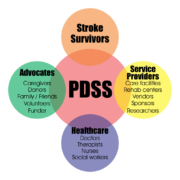Driving after stroke
The injury to the brain caused by a stroke can lead to widespread and long-lasting problems.
Driving after stroke can be challenge for any recovering patient, Coming Home Organization(cho) work tirelessly to provide services to help you recovery at home safely, easy and fast.
Although some people may recover quickly, many people who have a stroke need long-term support to help them regain as much independence as possible.
This article will answer some of your questions on Driving after stroke:
According to Stroke Association By law, you must not drive for a calendar month after a stroke. Depending on the type of stroke you had, others can’t drive for a minimum of one year after the stroke.
What if my doctor says I should not drive?
If your doctor tells you to stop driving for three months or more, you should contact the DVLA/DVA to tell them about your medical condition. You might need to send back your driving license, but wait until you speak to the DVLA. They will tell you what to do next.
How can a stroke affect my driving?
After a stroke, your ability to drive safely can be affected in various ways. You may have physical or visual problems, or you may have difficulty concentrating for long periods of time or making quick decisions.
Physical effects
Weakness in your arm, leg or both is common after a stroke can affect your abilities of Driving after stroke. You may also experience other physical effects which include pain, changes in sensation, weakness and problems with balance.
Vision problems
A stroke can cause a variety of problems with your sight. These include double or blurred vision, loss of central vision in one or both of your eyes, and visual field loss.








Leave a Reply
Want to join the discussion?Feel free to contribute!